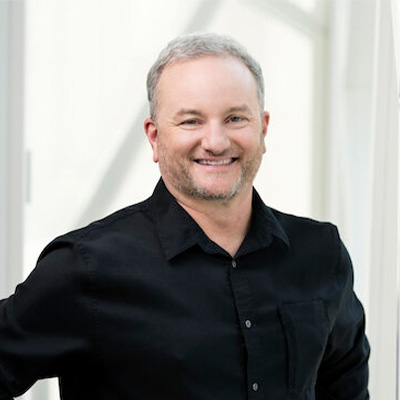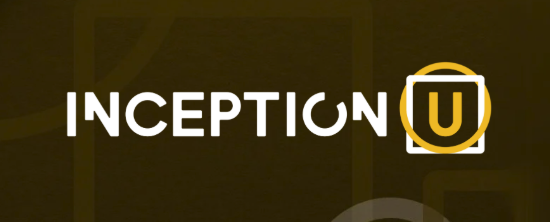Every company selects a name and then sets a foundation or tagline. For us - an organization that is dedicated to preparing people and organizations to be confident and fit for a volatile, uncertain, complex, and ambiguous world - the name is InceptionU.
So, what’s in a name?
Inception is starting. Beginnings. Origins. Starting over. It is a continuous process and not something that happens only once. The best thing we can do is to create the conditions for more life. More beginnings. This is the essence of regeneration - something that the indigenous peoples of the world capture in their way of knowing and that needs to be threaded into our day-to-day lives. We always have to start. We no longer live in a world (indeed if we ever did - that’s a different blog) where we can wait for all the correct answers before we begin.
The U is connected to university, specifically the idea of the university that was born in The Enlightenment and finds common cause with ancient empirical traditions of learning and responding. A place where people courageously and openly pursue an understanding of the world and our place in it. A place where demonstrating competency by completing real projects and the most accurate picture of the real world is cherished. Where grades for regurgitating what we are told are nowhere in sight and the expectation is that it should be a safe space for independent thought and honest collaboration to better challenge and improve beliefs. InceptionU embraces those ideals by going back to the future of the university.
Understand Anything
It’s a well-known fact that no one likes a know-it-all. Something that could easily have been said by Cliff Clavin, the resident bar know-it-all on the long-running comedy series, Cheers. And nobody really liked him because of the insecurity that drives the behaviour. We can’t know it all - a profound level of ignorance is part of living.
Because we can’t know it all and because change is a constant, having the competency to understand anything becomes important. Particularly if the world that we interact with is volatile, uncertain, complex, and ambiguous. And it is. This means the competency to learn and make accurate connections between things, having the skill to look past superficial differences and see the connections and currents of how things work and why it matters. Discerning between what’s trivial and what’s important. What’s accurate and what is mis, dis, or malinformation. This is the core competency of learning, understanding, and judgment. The useful and integrated application of critical, systems, creative and computational thinking underpinned by a reliable framework of seeing the world for what it is. Including - first and foremost - seeing ourselves for who we are since that is the lens we use to see the rest. As Socrates was reported to have said, ‘the unexamined life is not worth living.’
A know-it-all spouts facts but sees little. An understand-it-all sees the meaning and connections of things regardless of context even if they don’t know all the facts. They understand they can’t know all the facts and are comfortable with that. They understand how little they know and that they will never be able to know it all. They KNOW that they are ignorant and that they can reduce their ignorance through seeking to understand. On the other hand, the know-it-all is terrified by that possibility.
People do like an understand-it-all. They are very helpful. Understanding creates the conditions for patience, coherence, insight, and wisdom. Things we all need.
 Build Something
Build Something
We won’t know and we certainly won’t understand unless you build something and ship it. Showing is a lot more powerful than telling. Powerful for you to deepen your own understanding and powerful for us to SEE what it is you are working on and what it might mean for us.
Examples help us know how we are doing and what is possible. They help us see things that we can’t imagine. Even creating feelings of FOMO - I can’t unsee what you have shown me. The author Arundhati Roy has a great quote about this phenomenon. It doesn't have to be the formally completed artifact of our work - renderings and prototypes often work just as well. Building things and then shipping them to be seen and used by others forces us to tackle the design challenges of making sure what we are thinking about is desirable, viable, and feasible. We consider how it will actually work, what it will look like, and what it will feel like.
Building something for ourselves lets us know how we are doing. The requirements of what we need to build pulls our learning in meaningful ways and integrates with our work. Building something is vital to building competency.
The world needs your examples. We need you to be a competent builder of things to deepen our understanding of what is possible and to help us understand how change can happen.
Change Everything
Everything changes, that’s a fact. This doesn’t help most people deal with it any more easily. Simply saying “change is the new normal” does not equip people to work through, navigate and lead change effectively. Because we understand that everything is always changing and it requires precious energy and attention to respond, it drives our thirst for higher levels of certainty. We get used to things as the fable presented in ‘Who Moved My Cheese?’ demonstrates. Getting used to things lets the Status Quo Bias set in while opening the door for hubris and arrogance. Change is a vector - it has both magnitude and direction. It often isn’t good. In fact, humans pursuing solutions to problems have created ever larger problems, usually because we aren’t able to see the potential feedback in the system or even be clear about what we might be imposing on the world. That is a behaviour we seek to change. We can get a lot better at this. The struggle is real. And yet humans are really good at the work of change once we get to it.
Partly we care about changing everything because we need to get comfortable with change always happening and partly because the skillful, thoughtful, imaginative intention to make meaningful and positive change is something that builds agency and options. As is getting comfortable with ways of working together that are more responsive to change and uncertainty so that we develop better-fit outcomes that flex with change over time. Taking our understanding, building something, and then improving everything is a powerful competency.
And maybe ‘improve’ is the word to use instead of ‘change’ - we want to help people to gain the competency to IMPROVE everything. Improvement is change with the directional component pointing in the right direction. Even people who don’t like change, generally appreciate improvement. Part of being able to understand anything is to see the things that shouldn’t change because they already carry significant benefits for ourselves and for others. As The Who first sang over 50 years ago, we don’t want to get fooled again and end up with ‘meet the new boss, same as the old boss.’
Become an agent of improvement. Being able to bring improvement to others is a gift to them. Bringing it to ourselves and gaining a measure of choice and control in the process is the gift that makes it possible to help others.
Do this by starting, creating the conditions for more people and things to start, understanding how things work, building examples of how things can be different, and, thereby, changing and improving everything. That’s what’s in a name for us. Join us on this journey.


 Greg Hart
Greg Hart 

